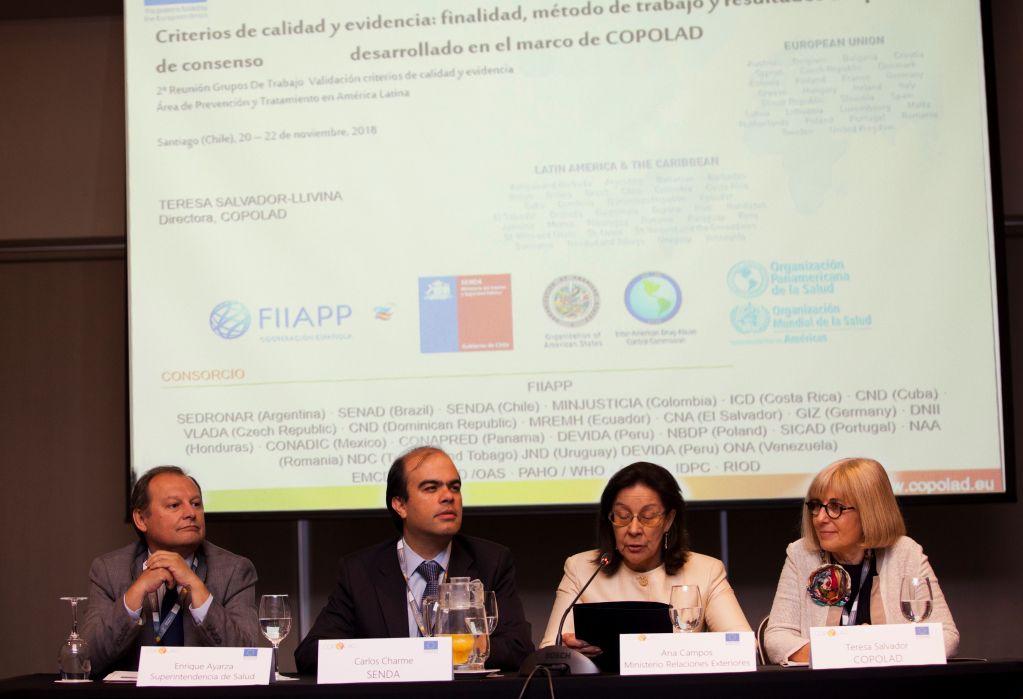Santiago, 20th November, 2018. From 20th to 22nd November, the 2nd Meeting of the Working Groups that have validated the quality and evidence criteria in Prevention and Treatment from Latin American countries takes place in Santiago, Chile
This activity closes the validation exercise of the agreed criteria within the framework of COPOLAD among all the countries of Latin America and led by Chile through the National Service for the Prevention and Rehabilitation of Drug and Alcohol Consumption (SENDA). The meeting will make it possible to evaluate the process followed and the challenges faced, as well as to explore the following steps to bring in quality standards as a basis for the establishment of legal frameworks in each country.
15 Latin American countries participate (Argentina, Chile, Colombia, Costa Rica, Cuba, Ecuador, El Salvador, Guatemala, Honduras, Mexico, Panama, Paraguay, Peru, Uruguay and Venezuela), in addition to the institutions that have been involved since beginning of the process in 2012: Pan American Health Organization (PAHO / WHO) and the Inter-American Drug Abuse Control Commission (CICAD / OAS), as well as the civil society represented by the Ibero-American Network of NGOs in the field of Drugs (RIOD). The Colombo Plan for Latin America and the Caribbean,. The Colombo Plan for Latin America and the Caribbean, , and the United Nations Office on Drugs and Crime (UNODC) also participate in the meeting.
The welcoming speeches were given by Carlos Charme, Director of SENDA; Ana Campos, representative of the Ministry of Foreign Affairs of Chile; Enrique Ayarza Ramírez. Intendant of Providers from the Superintendence of Health, Chile; and Teresa Salvador-Llivina, Director of COPOLAD.
The meeting explores the implementation of national systems for evaluation and accreditation of prevention programs and treatment services and harm reduction, as a next step in the process..
Is remarkable the presence of international organizations such as PAHO and CICAD, who share their experience with the participating countries as members of the Council that has been guarding the entire process of validation of the agreed quality criteria within the framework of COPOLAD.
he civil society also has a prominent role in this process, as three foundations working with the RIOD: Paréntesis (Chile), Aylen (Argentina), and Casa Abierta (Dominican Republic) share their experiences during these months with the participating countries.
Finally, and as an example of how the services and programs evaluated perceive the improvement process of their programs, three centers in Chile (Treatment Center Tiempo de Esperanza, Prosec and Peñablanca Hospital), present their experience in this area that, ultimately, is a way to increase and improve the attention to the needs of persons, from the perspective of evidence of effectiveness of interventions and respect for human rights.
The importance of the incorporation of national systems of evaluation and accreditation, are central topics of the whole meeting, therefore, the last part of it has the presence of Intendance of Providers of Chile (Superintendence of Health), institution responsible for the accreditation in Chile, as a regional reference in the Americas, in this area.






